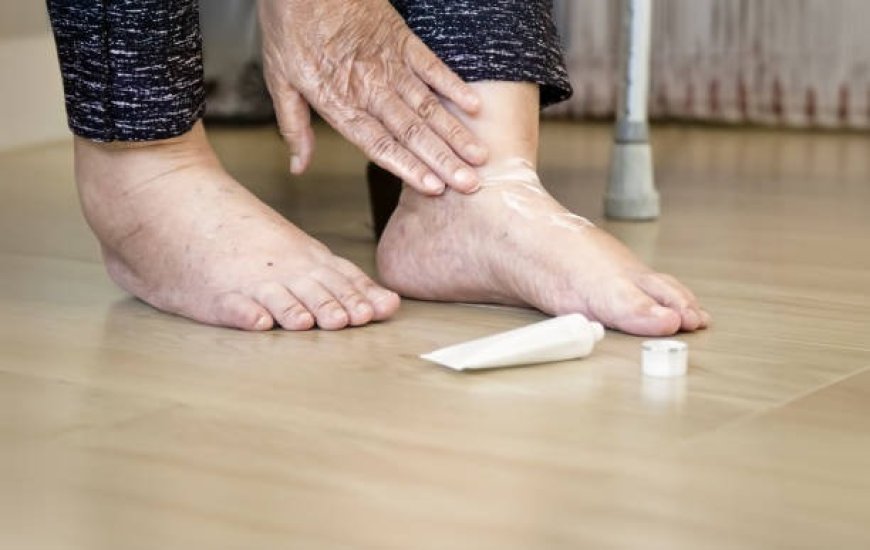5 Lifesaving Foot Care Tips Every Diabetic Needs to Start Today
Protect your feet! Discover 5 essential foot care tips every diabetic should follow today to prevent serious complications.

Are you paying enough attention to your feet? If you have diabetes, how you care for your feet can be the difference between a healthy life and serious complications. Many people don’t realize how small foot problems can quickly turn into major health risks.
Foot care might not seem like a top priority at first, but for those living with diabetes, it's a vital part of daily health. High blood sugar can affect nerves and circulation, making your feet more vulnerable to injuries and infections. That's why understanding Diabetic Foot Care early can make a huge impact. Here are five essential foot care tips to help you stay safe and healthy.
1. Inspect Your Feet on a Regular Basis
Even a small cut or blister can become dangerous if ignored. Make it a daily habit to check your feet for any changes. Look closely at the tops, bottoms, and between your toes. Use a mirror if it's hard to see every angle, or ask a family member for help.
Watch for red spots, swelling, cracks, or wounds. If you notice anything unusual, especially something that doesn’t heal within a couple of days, call your doctor. Acting early can prevent the problem from growing.
2. Keep Your Feet Clean and Dry
Good hygiene is a simple but powerful tool. Use warm water and a mild soap to wash your feet daily. Make sure the water isn’t too hot, as nerve damage can make it hard to feel temperature changes.
After washing, dry your feet gently with a towel, especially between your toes. Damp areas can lead to fungal infections. Once your feet are dry, you can apply a light moisturizer, but avoid putting lotion between your toes. That space needs to stay dry.
3. Select the Right Shoes
Shoes can either protect or harm your feet, depending on how well they fit. Always wear clean, well-fitted shoes, even indoors. Going barefoot raises the risk of stepping on something sharp or harmful without noticing.
Pick shoes that are wide enough and provide good support. There should be no pressure points or tight areas. If you have trouble finding a good fit, ask your doctor about diabetic shoes. These are specially made to reduce risk and protect sensitive feet.
Also, always wear clean, soft socks. Avoid ones with tight elastic bands that can restrict blood flow. Seamless socks work best to avoid irritation.
4. Don’t Ignore Corns or Calluses
It might be tempting to try to remove rough patches on your feet yourself, but this can be dangerous. Avoid using sharp tools or chemical treatments at home. They can cause cuts or burns, which may not heal well if you have diabetes.
Instead, have corn and calluses treated by a foot specialist. Podiatrists are trained to handle these issues safely. Trying to fix them on your own can cause more harm than good.
5. Stay on Top of Regular Check-Ups
Even if your feet look fine, routine foot exams are important. Your healthcare team should examine your feet at least once a year or more often if you have had foot problems in the past.
These visits can help detect nerve damage, circulation issues, or early signs of infection. Catching these issues at an early stage makes treatment easier and more effective. If you ever notice new symptoms like tingling, burning, or numbness, don’t wait for your next check-up. Immediately contact your health expert.
Taking good care of your feet isn’t just about comfort. It’s about staying healthy and independent. A small issue today can become a serious infection tomorrow if ignored. That’s why starting a daily routine and following these tips is critical. Good Diabetic Foot Care means being proactive, paying attention to changes, and seeking help when needed. With the right care, they’ll keep doing that for years to come. So take good care of them, and your future self will thank you.







